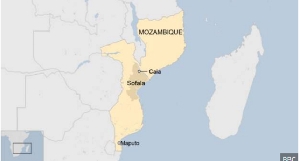Opinions of Monday, 29 November 2010
Columnist: Tawiah, Francis
In The Name Of Oil, Ghana Is Already Swimming In A Flood Of Debt
Ghana shall soon be owned by the Asians:
Ghana government and the Ghana National Petroleum Corporation are entertaining too much offers for cooperation and a stake in the Jubilee oil field from all over Asia. We have therefore started to swim in a flood of debt, looking at the peak of the loans we have taken alone from Asia.
Since ExxonMobil’s $4 billion offer for Kosmos Energy's 23.5% stake in the Jubilee field was rejected last month, Asian national oil companies have been rounding about in Accra, aiming to become GNPC's financier and operating partner. Kosmos, however, is contemplating a listing of its shares as an alternate way to go ahead with the project.
ExxonMobil abandoned its offer on 17 August, opening the way for a GNPC bid backed by the China National Offshore Oil Corporation. Sources at GNPC told Africa-Asia Confidential that the deal would include a $5 billion loan to the GNPC. CNOOC would take a 10% stake, another major oil company 10% and GNPC 3% of Jubilee, which is estimated to hold more than 1.2 billion barrels of oil. CNOOC is in good terms with Accra due to previous promises by the China Development Bank to bankroll Ghana's oil infrastructure with billions of dollars in preferential loans.
Agreement on the price of the sale could be more problematic following the 13 September confirmation by Tullow Oil of a big new discovery in the Owo field on the Deepwater Tano Block, in which Kosmos has an 18% stake. Kosmos says that the ExxonMobil offer of $4.3 billion was under market value, and it would now prefer to sell at $5-6 billion GNPC had offered to match ExxonMobil's offer, but Accra is wary.
Other countries are joining the fray. After the visit of Crown Prince Naruhito in March, the Japanese government made an interesting bid that would allow GNPC to buy out the Kosmos stake. Tokyo tempted the Accra government with a $1.5 bn. credit, a long-term $4 billion loan and fewer strings than CNOOC. The Japanese side, however, brings fewer technical skills to the table.
Japanese companies already have a foothold in Ghana's oil and gas sector. In 2008, Mitsui Ocean Development and Engineering won $875 million contract to provide oil processing facilities for the Jubilee field. But exploration financing was held up last month when the World Bank's International Finance Corporation called for new due diligence on Mitsui because it had paid $5 million to a consultancy part-owned by Tsatsu Tsikata, the influential member of the National Democratic Congress and former GNPC head. -> (WHY MUST TSIKATA POCKET 5 MILLION DOLLARS?)
The swift at Oil- Gas rush backed by the state-owned Japan Oil, Gas and Metals National Corporation, Mitsui owns a 20% stake in the highly prospective Keta Basin. Since October 2009, Japan's Modec-Itochu has been working on a $1 bn. gas project with Italy's Saipem, Nigeria's Oando and GNPC. The contractors will build gas pipelines, a processing plant and storage facilities. Japan's oil and gas diplomacy began in September 2008 when Yasutoshi Nishimura, Parliamentary Vice-Minister for Foreign Affairs, led a delegation to West Africa. They and GNPC agreed to look at oil and gas projects and electricity development. Japanese company Marubeni announced that it would like to set up operations in Ghana to benefit from the oil boom.
Indian Commerce Minister Anand Sharma was in Accra in early September with a delegation including representatives of the Oil and Natural Gas Corporation, ONGC-Videsh and GAIL (India). The executives discussed joint ventures in Ghana's offshore sector with GNPC. GAIL and ONGC have been in talks with GNPC but the talks have yet to yield tangible results. At the 2009 India-Africa Hydrocarbon summit, the Deputy Energy Minister Emmanuel Armah-Kofi Buah said a lot of companies are interested in the Jubilee field.
ONGC-Videsh was one of the first companies out of the gates in the initial phase of the Kosmos sale, but its offers have not had much play in Accra. While CNOOC had first brought in Goldman Sachs to advice on its initial bid, ONGC hired Citigroup to advice on a bid worth between $3-5 billion in July 2009. If Indian companies cannot get in on this round of Ghana's oil development, Delhi is keen to get ONGC-Videsh to cooperate with GNPC on future exploration projects.
After meeting Trade Minister Hannah Tetteh, Sharma offered to train Ghana's oil cadres at the Indian Institute of Petroleum. Finance Minister Kwabena Duffuor requested that Sharma get Indian companies to invest in building Ghana's capacity in the upstream and downstream oil sectors. Back in October 2004, ONGC-Videsh signed a memorandum of understanding (MoU) with GNPC for exploration and production cooperation, but it promised much and delivered little. It did, however, incorporate provisions for the training of GNPC officials in India.
State-owned Engineers India Ltd. has been trying to penetrate the Ghanaian market. The company, which builds oil platforms, oil and gas processing units and refineries, set up a Ghana office in November 2009. It started further talks with GNPC in February to work with GAIL on monetizing Ghana's gas resources and building up infrastructure.
The Indian Petroleum Minister Murli Deora says that Delhi is keen to back its company’s development of liquefied natural gas plants in Africa. The lack of a foothold in Ghana's oil and gas sector is holding back other Indian-backed projects.
The India's state-owned Rashtriya Chemicals and Fertilizers signed an agreement to build a $1.5 bn. gas-based fertilizer plant at Shama in the Western Region of Ghana. The million ton per year plant should be in operation by 2014, but the government has not guaranteed RCF a secure source of feedstock.
Earlier this year, Energy Minister Joe Oteng-Adjei emphasized that the priority for gas from Jubilee would be energy production, whereas future gas finds could be used for fertilizer and other projects, which according to Oteng-Adjei the projects may take four to five years.
A lack of gas at the Chinese-built Asogli power plant delayed the plant's start-up and Asogli was inactive for over a year when it could have been producing 200 megawatts for the national grid. Production of 100 MW only began on 12 September. Asogli may not have a steady supply of gas until sometime next year. The fertilizer project is 51% owned by GAIL and RCF, while the Ghanaian government holds the remaining shares. The project promises to have large knock-on effects for agriculture in Ghana and the rest of West Africa. It will also produce liquefied petroleum gas for the transport industry.
South Korea's Korea National Oil Corporation has also been mentioned as a strategic partner for the Accra government, but its current hostile takeover bid for Britain-based Dana Petroleum, which has assets in North and West Africa, makes its engagement in Ghana less likely. A delegation of South Korean officials was in Accra in March to discuss investment in exploration, production and downstream activities. Chief Executive Kang Young-won said that KNOC was interested in the Kosmos stake, but GNPC sources said Seoul's offer was contingent on the government buying back the stake.
The Korea Petroleum Association held a refining conference at Ghana's National Petroleum Association in December 2009 to announce its interest in a joint refinery project and Vice-President John Mahama met representatives of Samsung to discuss a dedicated oil and gas port at Cape Three Points.
Seoul promised to part-finance Ghana's longest oil pipeline, which was completed in 2006. The 260 Kilometers, $40 million Buipe-Bolgatanga Petroleum Products Pipeline was built with $38 million from Seoul. It connects the refinery in Tema to the Northern Region of Ghana.
Apart from the huge loans the Government has already taken in the name of the Oil production, the Government has still not come out with how the Oil production as well as its revenue is going to be administered.
FRANCIS TAWIAH (Duisburg – Germany)












